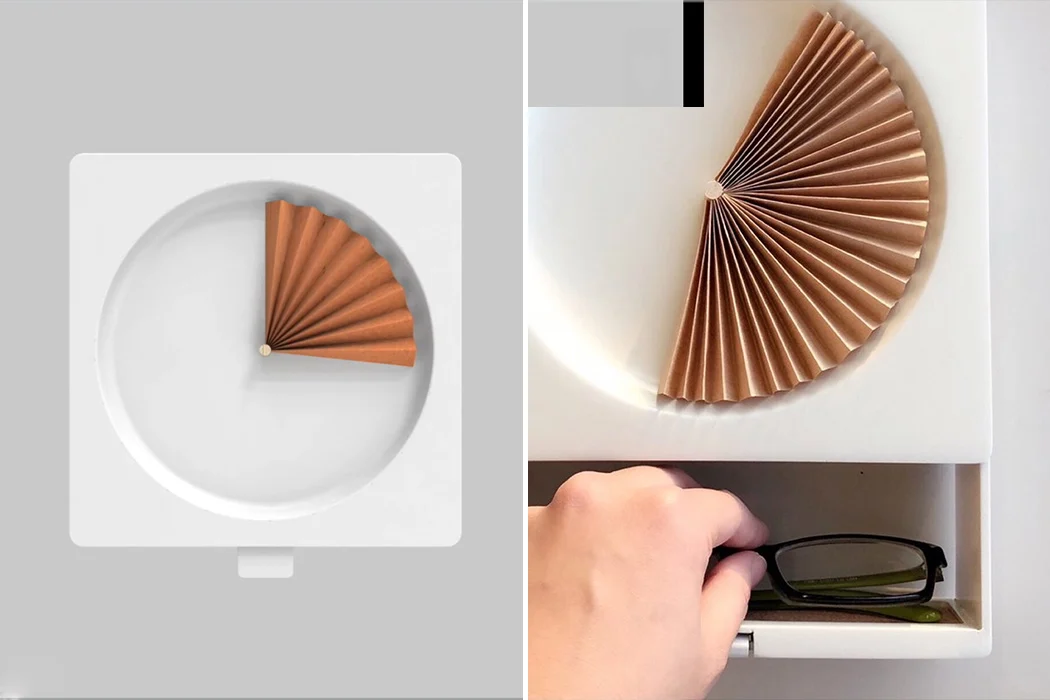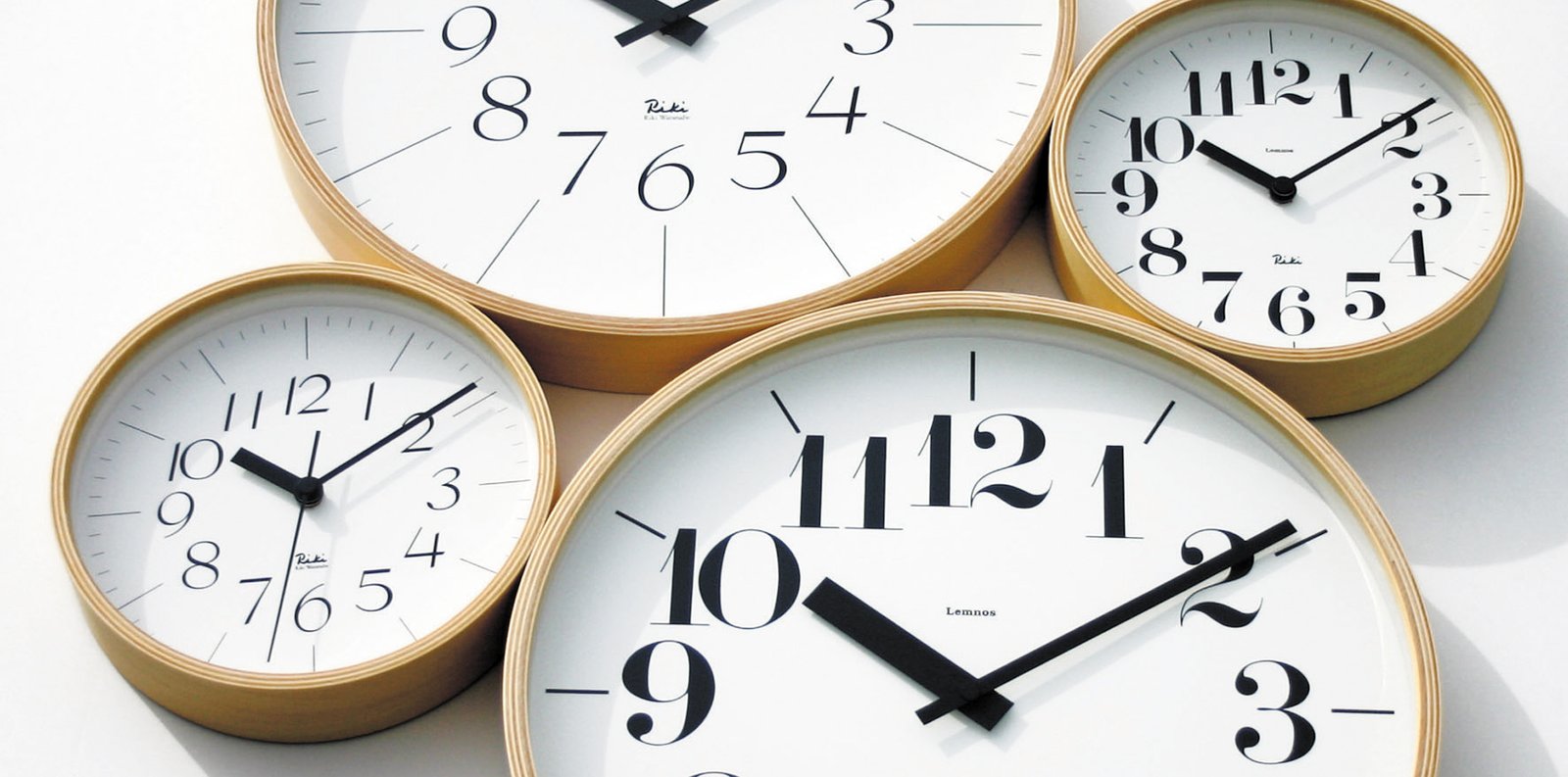Japanese clock design has a long, rich history that seamlessly blends traditional craftsmanship with modern innovation. As technology continues to evolve, so does the future of clock design in Japan. This article explores how Japanese clock design is evolving, focusing on the integration of modern technology, sustainability, and maintaining the essence of traditional craftsmanship.
Embracing Modern Technology
Smart Clocks and Connectivity
The rise of smart technology has had a significant impact on the clock industry worldwide, and Japan is no exception. Japanese clockmakers are now incorporating cutting-edge technology into their designs, resulting in a new generation of smart clocks. These clocks go beyond telling time; they integrate with smart home systems, offering features such as voice control, alarms, weather updates, and reminders.
Brands like Seiko and Citizen have started developing clocks that are not only visually appealing but also technologically advanced. These smart clocks cater to a tech-savvy generation, combining traditional Japanese design with modern convenience. The challenge for Japanese designers is maintaining the minimalist, elegant aesthetic while incorporating the latest tech features.
Fusion of Analog and Digital
One of the most exciting trends in Japanese clock design is the fusion of analog and digital elements. Clockmakers are reimagining classic analog designs with digital displays, creating a harmonious blend of tradition and modernity. This hybrid approach appeals to those who appreciate the craftsmanship of mechanical clocks but still desire the practicality of digital timekeeping.
For example, some Japanese clockmakers have introduced clocks with mechanical hands that move in sync with a digital time display. This fusion is a testament to Japan’s ability to honor its past while embracing the future.
Sustainability in Clock Design
Eco-Friendly Materials
As sustainability becomes a priority across industries, Japanese clockmakers are turning to eco-friendly materials and practices. Wooden clocks, a traditional staple of Japanese design, are now being made from sustainably sourced timber. This shift reflects a broader movement in Japan to reduce the environmental impact of manufacturing while maintaining the high quality of craftsmanship.
In addition to wood, some clockmakers are exploring recycled metals and plastics to create timepieces that are both stylish and environmentally conscious. By adopting sustainable materials, Japanese clock design is positioning itself as a leader in eco-friendly craftsmanship.
Energy Efficiency
Another aspect of sustainability in clock design is energy efficiency. Many Japanese clockmakers are developing timepieces that use minimal energy or are powered by renewable sources. Solar-powered clocks, for instance, are becoming more popular in Japan, offering a green alternative to traditional battery-operated clocks.
This emphasis on energy efficiency aligns with Japan’s broader goals of reducing carbon emissions and promoting renewable energy. As consumers become more eco-conscious, energy-efficient clocks are likely to gain even more traction in the market.

Preserving Traditional Craftsmanship
Honoring the Wadokei Tradition
Despite the advancements in technology and sustainability, Japanese clockmakers are still dedicated to preserving the traditional craftsmanship that has defined their designs for centuries. One notable example is the continued production of wadokei clocks, which reflect Japan’s historical timekeeping system that divides day and night into six periods. These clocks are a unique blend of cultural heritage and technical ingenuity.
Craftsmen who specialize in wadokei clocks focus on meticulous detail, ensuring that these timepieces remain true to their historical roots. While not as widely used as modern clocks, wadokei clocks are cherished for their cultural significance and craftsmanship.
Handmade Clocks and Custom Designs
Handmade clocks remain an essential part of Japanese clock design, even as mass production becomes more prevalent. Artisans continue to create custom-designed clocks that reflect the timeless beauty of traditional Japanese aesthetics. These clocks are often made with natural materials like wood and stone, and they feature intricate hand-carved details.
The future of Japanese clock design will likely see a continued appreciation for handmade, custom clocks. These timepieces offer a unique, personal touch that cannot be replicated by machines, ensuring that the art of clockmaking remains alive in Japan.
Minimalist Aesthetic and Zen Philosophy
Influence of Zen Design
Minimalism has always been a defining feature of Japanese design, and this trend shows no signs of fading in clockmaking. The influence of Zen philosophy, which emphasizes simplicity, balance, and tranquility, continues to shape the aesthetic of Japanese clocks. Modern clocks often feature clean lines, neutral tones, and a focus on functionality over ornamentation.
This minimalist approach resonates with global audiences seeking calm and simplicity in their living spaces. As the world becomes more fast-paced and chaotic, Japanese clock designs that embody serenity and balance are likely to grow in popularity.
The Role of Nature in Design
Nature plays a crucial role in Japanese design, and clocks are no exception. Many modern Japanese clocks are inspired by natural elements such as wood, stone, and water. Designers aim to create timepieces that evoke a sense of harmony with the natural world, often incorporating organic shapes and textures into their work.
As sustainability and environmental awareness become more important, clocks that reflect nature are expected to continue influencing Japanese clock design. This connection to nature aligns with Japan’s cultural values and will likely remain a central theme in the future.
The Future of Japanese Clock Exports
Global Demand for Japanese Clocks
Japanese clocks have long been prized for their quality, precision, and craftsmanship, and global demand is expected to rise in the coming years. The fusion of traditional design with modern technology and sustainability appeals to international markets, particularly in regions where Japanese culture and design are highly respected.
As more consumers seek timepieces that offer both function and artistic value, Japanese clocks will likely continue to find a place in homes and collections around the world. Japanese clockmakers are poised to capitalize on this growing demand by offering innovative designs that appeal to both tradition and modernity.
Exporting Japanese Innovation
With the rise of global interest in smart technology and sustainability, Japanese clockmakers are positioned to lead the market in innovative timekeeping solutions. Japan’s reputation for precision engineering, combined with its commitment to sustainability and design, makes it a key player in the future of clock design on a global scale.
Conclusion
The future of Japanese clock design is a fascinating blend of tradition, innovation, and sustainability. As smart technology and eco-friendly practices become more prominent, Japanese clockmakers are embracing these trends while staying true to their rich history. Whether through minimalist designs, handmade craftsmanship, or cutting-edge smart clocks, Japanese clockmakers continue to lead the way in creating timepieces that are both functional and beautiful.




Das Treueprogramm von Shuffle ist anders als alle anderen Treueprogramme die Sie kennen. Für Sapphire 1
erhalten Sie ein weiterer $500 Bonus von uns sobald Sie sich mit uns in Verbindung setzen und die Belohnung beantragen. Dieser
Bonus besteht aus einem 100% Einzahlungsbonus auf die erste Einzahlung in der Kryptowährung Ihrer Wahl.
Bei Shuffle Casino können alle neuen Spieler, die den Code ” Exclusive ” verwenden einen exquisiten Willkommensbonus nehmen.
Um diesen zu erhalten, müssen Spieler sich nach der
ersten Einzahlung auf ihr Spielerkonto an den Kundendienst wenden, und
zwar noch bevor sie erstmals im Casino spielen. Während der klassische Neukundenbonus im Casino alten Formats zum allgemeinen Standard gehört, beschreiten Kryptocasinos oftmals einen anderen Weg.
Shuffle.com ist ein neues und innovatives Online-Casino & Sportwetten, das die beste Auswahl an Casinospielen und Sportereignissen bietet und
seit seinem Start im Februar 2023 sein Angebot und seine Sportarten stetig erweitert und optimiert.
Neben dem 100% Bonus auf deine erste Einzahlung und
den 200 Freispielen, bietet unser Paket weitere
Vorteile bei deinen nächsten Einzahlungen. Teilnahme an Glücksspiel ab
18 Jahren – Glücksspiel kann süchtig machen – Hilfe finden Sie
auf spielsuchthilfe.at oder anonyme-spieler.at
References:
https://online-spielhallen.de/umfassender-ratgeber-zu-500-casino-promo-codes-alles-was-sie-wissen-mussen/
Du möchtest dir50 Freispiele ohne Einzahlung fürs Online Casinosichern? Wir haben für euch alle Infos, welche Zahlungsanbieter wie funktionieren. Entscheidet euch jetzt für euren neuen Lieblingsanbieter und startet
gleich mit demWett-Bonusohne Einzahlung durch – ganz ohne Risiko, dafür
aber mit satten Gewinnchancen!
Im Prinzip sind Gratiswetten ohne Einzahlung Wetten, die man einfach so vom Wettanbieter geschenkt bekommt.
Eine besondere Form des Wettbonus ohne Einzahlung sind Gratiswetten ohne Einzahlung.
Wettanbieter, die sowohl Sportwetten als auch ein Casino
im Angebot haben, können unterschiedliche Boni für diese Bereiche anbieten. Dies kann beispielsweise ein Angebot für
Kunden sein, die schon länger nicht mehr gewettet haben und die
der Wettanbieter wieder zurück auf seine Seite holen möchte.
Meist ist der Wettbonus ohne Einzahlung ein Bonus, der ausschließlich Neukunden zur
Verfügung steht.
So kann dir der Online Casino Bonus ohne Einzahlung zum Beispiel als reguläres Bonusguthaben angeboten werden.
Zum einen handelt es sich oftmals um einen sogenannten Neukundenbonus.
Erfreulicherweise gibt es unterschiedliche Möglichkeiten, wie
du dir einen Echtgeld Casino Bonus ohne Einzahlung sichern kannst.
Spätestens dann bewegt es sich nämlich in die Richtung eines Bonusguthaben eines Einzahlungsbonus, der
eben nur minimal ausgeschöpft wurde. Bei den Umsatzbedingungen eines Online Casino Willkommensbonus
ohne Einzahlung besitzt du weniger Guthaben. Einfach ausgedrückt,
kannst du bei einem Einzahlungsbonus zum Beispiel mit 100 € Einzahlung bei 100 % dafür sorgen, dass
du 200 € zum Spielen hast.
References:
https://online-spielhallen.de/sg-casino-freispiele-ihr-umfassender-leitfaden/
If playing with friends, you could always ask them for some advice before you
start playing. For example, you could watch Backgammon tutorials or games on sites
such as YouTube to better familarize yourself with the rules!
However, if you are looking to put your skills to the test,
you may want to play against another human player instead.
When playing 24/7 Backgammon, your home point is
in the bottom left corner of the screen. A die is used to
raise the stakes when playing Backgammon. A prime is a series of six consecutive points occupied by your checkers.
This provides them with a low-pressure way to get to grips with the
game. The number of points earned can vary, however,
depending on the state of the board when you bear out. The goal
of Backgammon is to ensure that your tiles have made their way across the board and back to their home point.
If you rolled as above, this means that you could move your first tile one
point along and another six points along. This means that you can choose between easy, medium, hard, or expert, depending on your skill level or understanding of the game.
A closed point is any point that is currently occupied by
at least one checker.
References:
https://blackcoin.co/online-gambling-in-sydney-a-comprehensive-guide/
Hello Jymgorn,Since you haven’t provided a player ID, email, or phone number, we’re unable to look into this
further. Definitely has to be my favourite online casino I
have come across so far! Promotions are regular offering a wide range of bonuses
VIP status is granted based on your activity and
deposit history. These are alternative gateways (mirror domains) to the same central casino, optimized
for different locations or traffic loads.
You may see references to Golden Crown Casino 6 or Golden Crown Casino
7 online. You can play Golden Century Crown Casino pokies for fun (demo mode) or real money, depending on your preference.
Golden Crown withdrawal is one of the platform’s
most appreciated features.
References:
https://blackcoin.co/online-casino-welcome-bonuses-a-comprehensive-guide/
This is where understanding the ins and outs of theplatform truly elevates your journey,
helping you discover the best waysto enjoy real money casino games and potentially
walk away with biggerwins. This thoughtful nod to
local playersjust makes the whole online gambling experience smoother and way
moreaccessible, ensuring you always feel understood and valued
at casinoRocket Play. It just makes budgeting and
understanding your bets somuch simpler when you’re enjoying real money casino games.
It’s a platform built for players, by peoplewho clearly understand online gambling, ensuring your experience withcasino Rocket Play is always an absolute breeze.
We’ll uncover its stellar game selection, itsgenerous
bonuses, its robust security measures, and what makes playingat RocketPlay casino a genuinely rewarding experience.
The rewards for winning tournaments usually include cash prizes
and free spins for the selected games, high volatility slots,
numerous pokies, and table games. For these type of pokies, we offer numerous bonuses for high-rollers, as well as competitions to win prizes.
To achieve VIP Bronze status, players must deposit 9,000
AUD and wager 90,000 AUD within a quarter. Our welcome package is
one of the best in the industry, offering new players a substantial boost to their initial deposits.
References:
https://blackcoin.co/monte-casino-overview/
When you deposit a certain amount, the casino adds money to your bonus balance.
If you are an active player, the casino offers you extra rewards.
Hell Spin is more than just an online casino; it’s
a fiery fiesta of fun that brings the heat right to your screen. The app maintains the same fiery theme and easy
navigation as the website, ensuringa seamless gaming experience.
In fact, it’s a paradise for gamers, filled with sizzling bonuses, a
plethora of games, and a VIP program that’s hotter than Hades himself.
Hell Spin provides you bonuses with the minimum deposit.
You can get both offers, even if you aren’t ready to
spend much money on gambling. The banking system is as transparent as possible,
and the time you should wait for your winnings can be only a few minutes, if
you use an e-wallet. Join the VIP program to enjoy gambling
even more! And with their commitment to responsible gaming, you can be
sure that your gaming experience is not only fun but
also safe.
The fiery theme, the sizzling bonuses, and the hot VIP program – it’s a unique gaming experience that’s
hard to find elsewhere. Taking part in a generous
promotion program, you can get extra funds on your casino balance
and free spins to play on certain slot machines with no money risks.
Make your gambling experience even more enjoyable with bonuses by Hell Spin. This online casino is a fiery playground for those who dare to spin the wheel of fortune.
References:
https://blackcoin.co/bars-the-classic-slot-machine-theme/
best online casino usa paypal
References:
https://vhembedirect.co.za/employer/best-online-casinos-in-australia-top-casino-sites-for-2025/
online casino uk paypal
References:
http://dwsm.co.kr/bbs/board.php?bo_table=free&wr_id=273417
us online casinos paypal
References:
http://makeshare.org/bbs/board.php?bo_table=news&wr_id=30466
online casino paypal
References:
https://jokakiki.shop/bbs/board.php?bo_table=free&wr_id=207
paypal casino sites
References:
https://sosjob.ca/employer/the-best-no-deposit-bonus-casino-in-australia-for-2025/
online casino for us players paypal
References:
https://jobshop24.com/employer/list-of-casinos-in-australia/
**mitolyn official**
Mitolyn is a carefully developed, plant-based formula created to help support metabolic efficiency and encourage healthy, lasting weight management.